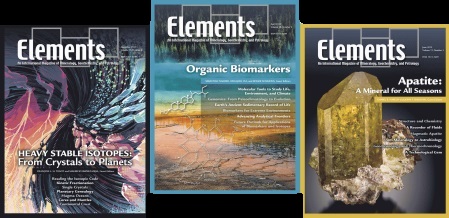Fluids, Faulting, and Flow
Geological fluids affect deformation of rocks both physically and chemically. The presence of fluids can lead to faulting (earthquakes) or enhance flow, depending on the level of stress. At higher stresses, fluids with a density less than their host generate Mode I microcracks, whereas fluids with a density greater than their host generate Mode I microanticracks; both can self-organize and cause faulting. At lower stresses, fluids segregate to grain boundaries at small strains and, at large strains, fluid-enriched zones develop that experience a higher strain rate than the bulk. Dissolved H2O enhances flow (e.g., by water-weakening). Consequences include earthquakes, differentiation, melt separation/volcanism, and seismic anisotropy.
Fluids, Faulting, and Flow Read More »


